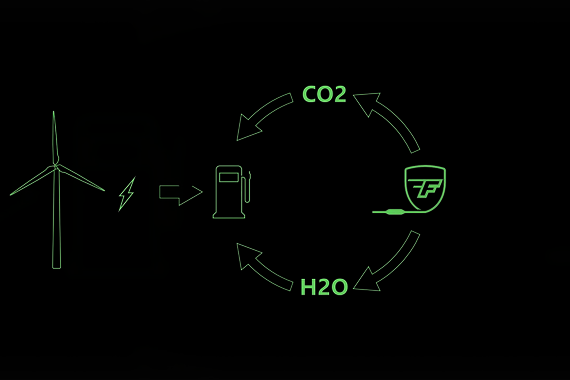Team FAST now involved with construction site activities
Team FAST is developing an electricity generator powered by sustainably produced formic acid for use on construction sites. A pilot project to test the generator in the field will run for the next two weeks as part of construction work on the N211 road. On Wednesday June 6 the presentation and demonstration of this sustainable alternative to the customary diesel generator will take place.
The students in Team FAST have been working for a number of years now on the application of ‘hydrozine’, which consists for 99 percent of sustainably produced formic acid, as an energy carrier. They split the hydrozine into hydrogen and CO₂ before using the hydrogen to generate electricity. The CO₂ that is released is reused in the production of more hydrozine, making the fuel CO₂ neutral in net terms.
Whereas initially the team was focusing on the use of hydrozine in the transport sector - they have been working for some time on a bus powered by this fuel - they now think that hydrozine may also have its use in other fields, such as the construction sector. “Hydrozine is an attractive option at locations where, normally speaking, there is no electricity, such as building sites,” says team manager Max Aerts. “The fuel is easy to transport by tanker and has a high energy density. And unlike diesel generators we emit no nitrous oxides and in net terms no CO₂. What's more, our generator makes little noise."
Field test
Meanwhile the team has produced a working pilot version of its generator. They will be testing this in the field for two weeks at the construction site being used by construction company BAM Infra to complete work on the N211 road. For the construction firm, this is one of three experimental innovations being tried out in the construction sector. Team FAST will be supplying some of the electricity using hydrozine. “By having the system up and running on site, any points for improvement will become evident that much more quickly,” expects Aerts.
The N211, which is being developed in cooperation with the province of South Holland, is intended to become the first CO₂-negative road thanks to the various sustainable initiatives involved in the process. Tomorrow, Wednesday June 6, together with BAM Infra, Team FAST will present the generator at the construction site.
![[Translate to English:] De generator van Team FAST. Foto | Bart van Overbeeke](/fileadmin/_processed_/f/e/csm_BvOF_2018_0209_AJ_license_team_FAST_-_team_FAST_REX_3c9808da6e.jpg)


Discussion